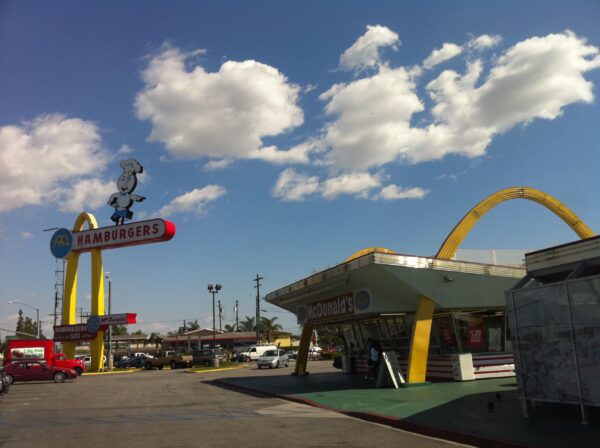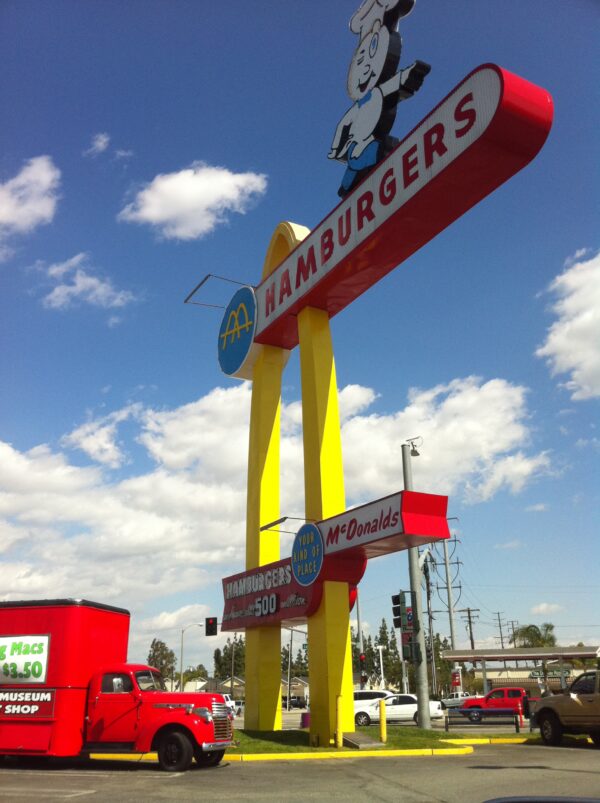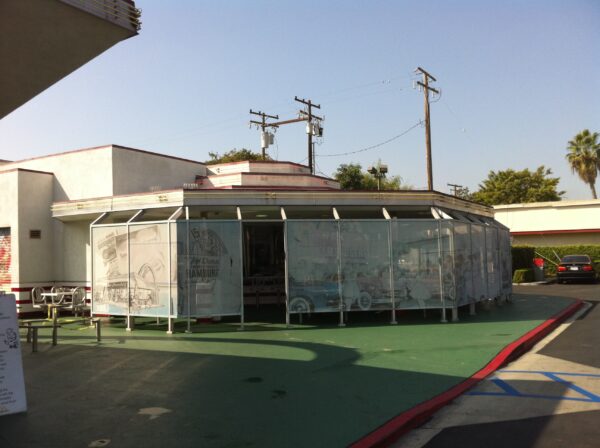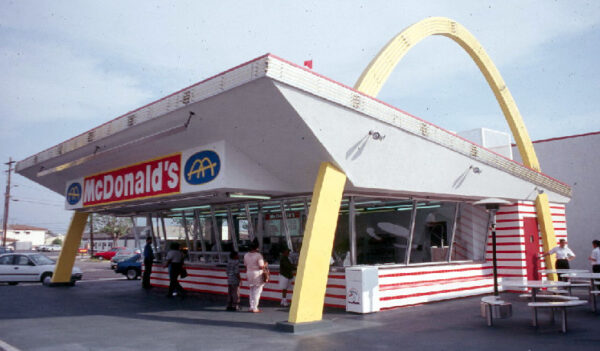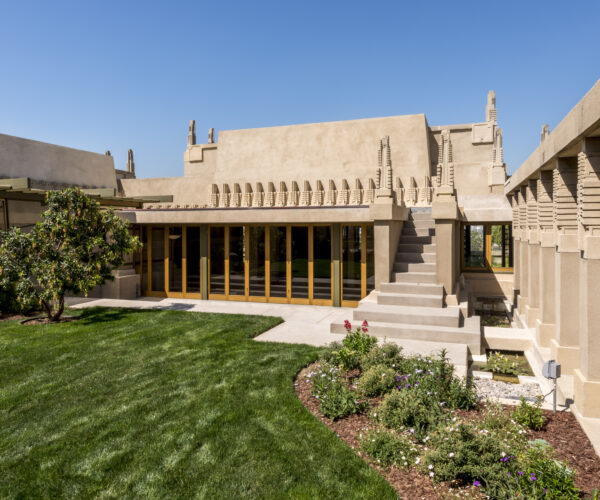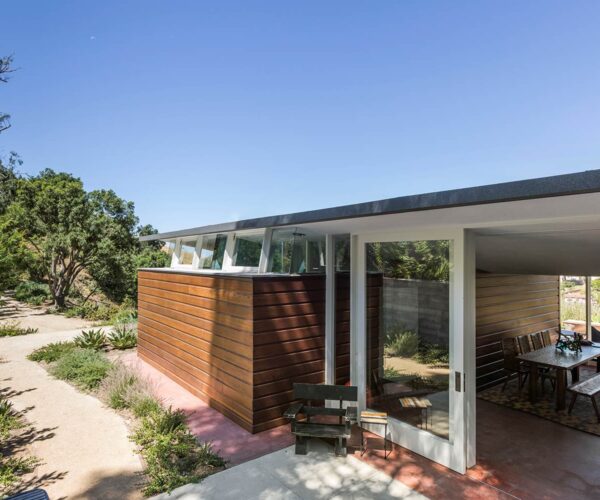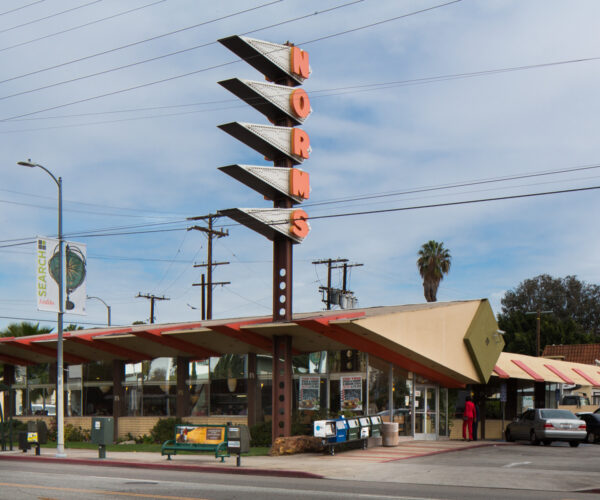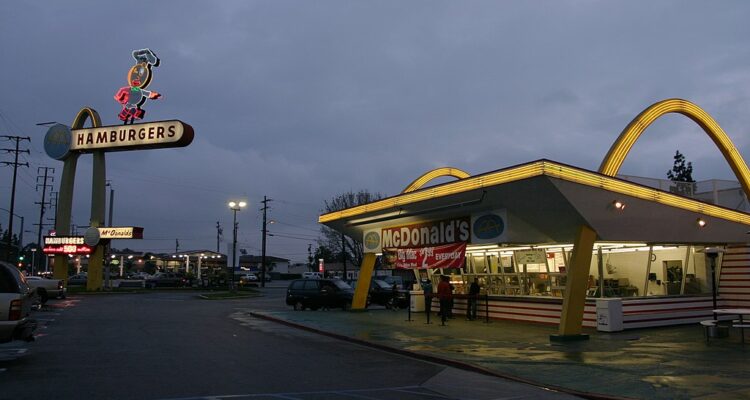
Place
McDonald’s Hamburgers
A Googie-style building designed and built in 1953 to reveal the restaurant's innovative food preparation techniques is home to the oldest McDonald's still in operation.
Saved
Since being saved from demolition in 1996, the World’s oldest McDonald’s continues in operation as a fast-food historic landmark.
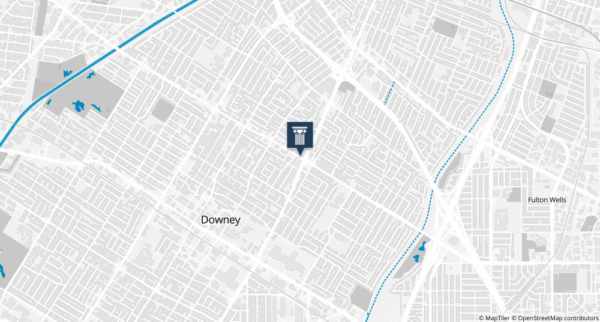
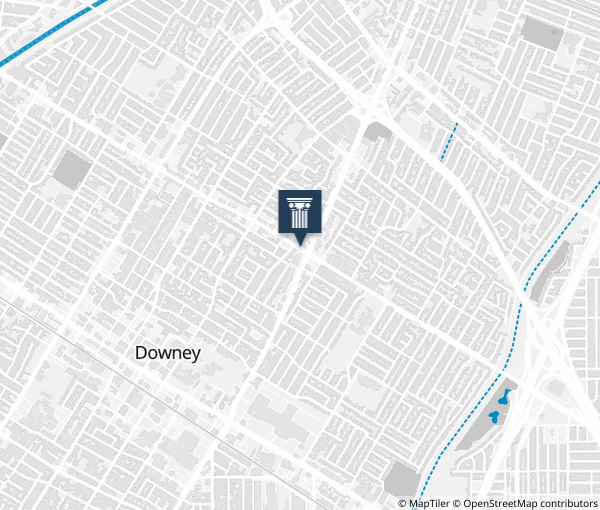
Place Details
Address
Architect
Decade
Property Type
Community
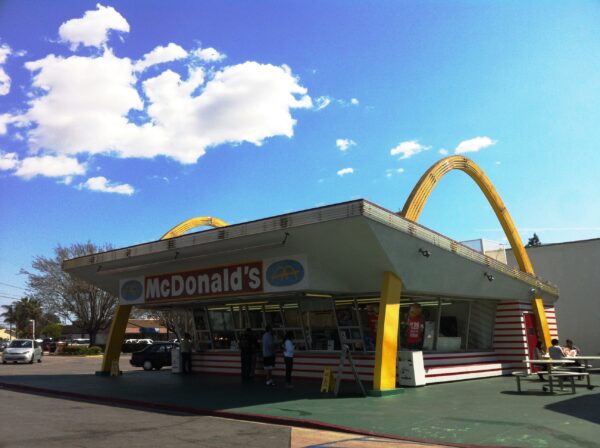
Adrian Scott Fine/ L.A. Conservancy
Overview
Once a fixture in most American suburbs in the 1950s and ‘60s, the distinctive McDonald’s hamburger stands with twin golden arches and red and white tiled exteriors were facing extinction. As McDonald’s Corporation changed branding and design requirements, the Googie-style drive-in’s were being demolished or substantially altered.
The Downey location survived intact because it was franchised not by the McDonald’s Corporation, but by the McDonald brothers themselves. By 1994, it was the World’s oldest remaining McDonald’s.
After corporate McDonald’s shuttered the location, the Conservancy and its partners undertook a two-year long campaign to save building. Saving an icon of America’s car culture increased the public’s awareness of the historic resources of the recent past and gave legitimacy to preserving other popular culture resources, making preservation understandable and more accessible to the public.
About This Place
About This Place
The McDonald brothers had been in the restaurant business for several years when they invented the “Speedee Service System” to automate and optimize food production at their San Bernardino drive-in restaurant. They commissioned Stanley Clark Meston, a commercial architect from Fontana who specialized in auto showrooms and had once worked for architect Wayne McAllister, to design a new building in Downey that could be replicated by franchisees.
Completed in 1953, the Googie-style building features two thirty-foot-high parabolic arches made of sheet metal that pierce the stucco wedge of the shed roof and were originally outlined in flashing pink neon. The brothers were proud of their food preparation techniques, so they revealed their operations with canted plate glass surrounding the kitchen to allow public inspection from all sides. In 1959, the original stock neon sign was replaced with a custom model featuring the original mascot Speedee running atop a 60-foot golden arch.
The hamburger stand received official recognition as a historic resource in 1984, at only 31 years of age, when it was determined eligible for listing in the National Register of Historic Places. Adjacent to the McDonald’s building is a replica of the McDonald brothers’ original stand in San Bernardino which houses a small museum.
Our Position
In response to closure of the Downey McDonalds in 1994, The Conservancy, led by its volunteer Modern Committee, and the Downey Historical Society pressed for preservation by staging rallies at the site that helped generate international publicity.
A campaign encouraging people to write to the chairman of McDonald’s even prompted a response from state Governor Pete Wilson who urged the corporation to “preserve for posterity the home of the Golden Arches.” It also caught the attention of the National Trust for Historic Preservation, who designating it one of America’s 11 Most Endangered Historic Places. The site’s owners, Pep Boys, remained a crucial ally by resisting market pressures to lease the land to another tenant and kept the building secure and clean.
The stalemate was broken when internal politics at corporate McDonald’s brought a new regime of leaders who took a fresh look at the Downey Golden Arches and realized that it had to be saved. McDonald’s restored the landmarked stand’s distinctive features and incorporated a new structure to house a museum, gift shop and restrooms. The world’s oldest remaining McDonald’s, once claimed by the corporation to be losing money and threatened with demolition, is now thriving and capitalizing on its heritage and is celebrated by many McDonald’s fans.
